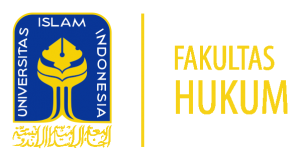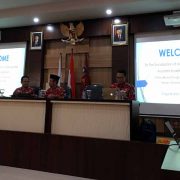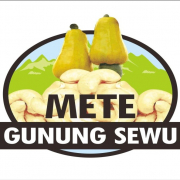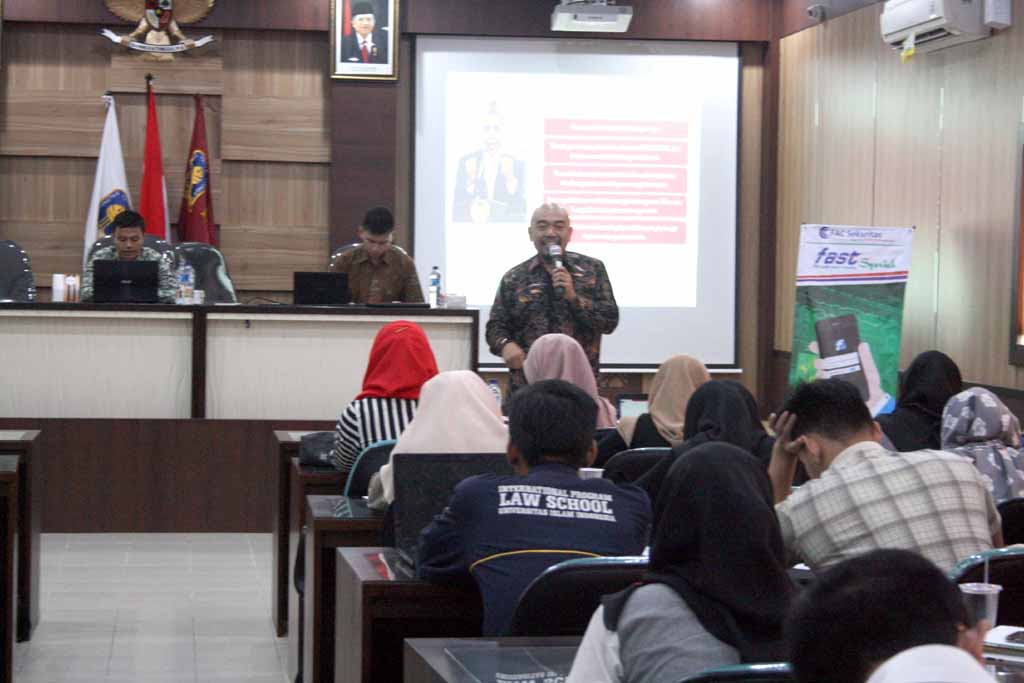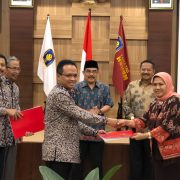Patent Law and Transfer of Technology
The Indonesian government has implemented the replacement of Law No. 14 of 2001 concerning Patent to become Law no. 13 of 2016 on Patents since one year ago. The substitution of this law is an effort of a preference approach to the National interests of Indonesia without violating international principles. From this replacement of this law, the Law no. 13 of 2016 focus on the regulation in a way how Indonesia can be more real in implementing technology transfer activities among parties within the country including foreign parties and domestic and vice versa. With the transfer of technology, it is expected thatthe acceleration of the nation’s competitiveness can be realized soon.
Transfer of Technology Policy in Indonesia
Indonesia is a country that currently has not optimally encouraged the development of technology towards the improvement of the mastery and utilization of technology. This in turn has an impact on Indonesia’s weak competitiveness. This can be seen from the 2017 Global Innovation Index report. Indonesia’s innovation ranking is in position 87 of 127 countries. In ASEAN region, Indonesia’s position is far below Malaysia which is in position 37 and Vietnam at rank 47. Based on Global Competitiveness Index data from World Economic Forum 2016-2017, Indonesia ranked 41st from 138 countries with pillar of innovation ranked 31, in subpillar innovation capacity Indonesia ranked 32nd, while in subpillar of high-tech government spending Indonesia ranked 12th, and the Indonesia rank for international patent subpillar was 99th.
From the data above, shows the development of Indonesian technology has not shown the encouraging condition. As for many causes, for instanse, the matter on transfer of technology policy in Indonesia has not real and progressive. Some policies have been used as a legal basis to encourage transfer of technology, such as; the Law no. 25 Year 2007 regarding Investment and the Law no. 18 of 2002 on National System of Research, Development and Application of Science and Technology. In Article 10 paragraph (4) of Law no. 25 Year 2007 states: “Investment companies employing foreign workers are required to conduct training and transfer of technology to Indonesian citizens in accordance with the provisions of applicable legislation.” Furthermore, in Article 16 paragraph (1) of Law no. 18 Year 2002 states: Universities and R & D institutions shall seek the transfer of intellectual property technology and the results of research and development activities, fully or partially funded by the government and / or local governments to enterprises, governments or the public to the extent not incompatible with public order and regulation.”
Looking at the two policies mentioned above, the government actually has a “political will” to require the implementation of transfer of technology in order to encourage the parties to master the technology either from abroad or domestic. However, those transfer of technology policiesapparantly have two weaknesses; First, the notion of technology in transfer of technology tends to have unclear meaning and seems to cover broad meaning. Therefore, the meaning of technology can be interpreted obsolete technology, current or certain period of time. Supposed the meaning of technology is interpreted as obsolete technology, thusit will be very detrimental to the National interests of the Indonesian. The Indonesian nation, therefore, will not be able to realize its competitiveness through the role of technology; and Secondly, although the transfer of technology policiescover the legal obligation, it turns out that the legal obligation is not followed by sanction or it can be said as “toothless tiger”. When the parties are expected to do transfer technology, but the fact they ignore it, it seems the policies have lack of legal enforcement. This is likely to create “not-serious condition” in implementation of transfer of technology policies for the parties who mastered the technology in Indonesia.
Patent Law: The Breakthrough for Transfer of Technology Policy
Recognizing that transfer of technology policy in Indonesia has not been able to encourage the process of control and use of technology, therefore the government of Indonesia took another breakthroughin 2016, by accommodatingthe transfer of technology policy in Law no. 13 of 2016 on Patents. The provision of Article 20 and Article 132 of Law no. 13 Year 2016 are a proof of a very progressive breakthrough in driving the realization process of transfer of technology in Indonesia. Article 20 states: (1). “The patent holder is obligated to manufacture the product or use the process in Indonesia.” (2). Making the product or using the process referred to in paragraph (1) shall support the transfer of technology, the absorption of investment and / or the provision of employment.”Meanwhile, Article 132 paragraph (1) letter e and (4) of Law no. 13 of 2016 states: “(1). The abolishment of a patent based on a court decision as referred to in Article 130 letter b is performed if: … e. the patent holder violates the provisions referred to in Article 20.” While the paragraph (4) rules that The lawsuit for deletion as referred to in paragraph (1) letter d and e is filed by a prosecutor or other party representing the national interest to the patent holder or licensee shall be obliged to the Commercial Court.
On the basis of the provisions of Article 20 and Article 132, the commitment and the government’s willingness for the transfer of technology in Indonesia has been expressed very strong and progressive. Perhaps it can be seen from the substance of the articles that link patent provisions and transfer of technology, which the articles do not encourage the obligation of transfer of technology, but the impulse is also accompanied by the threat of sanctions to the parties who have no political will to do transfer of technology. The sanction given is not half-hearted which is the removal of the patent itself as a form of control over the exclusivity of the invention held by the patent holder.
Idealization of Government Attitudes
The presence of government breakthrough to push transfer of technology through adoption of its policy in Article 20 and Article 132 Law No. 13 Year 2016 apparently has caused a pro and contra reaction. The reaction have been counterproductive especially from the patent holders from abroad who in fact were the investor. This counter-foreign attitude has not only been done by investors but also involved their leaders. The reason was that the provisions of Article 20 and Article 132 of Law no. 13 Year 2016 is considered as an obstacle to the investment they have, are and will do.
With the persistence of foreign pressure to the government concerning the provisions of Article 20 and Article 132 of Law no. 13 Year 2016, the government seems to experience “chaos” commitment. This disorder can be seen that the government has responded the foreign pressure at the beginning by planning the drafting of Government Regulation (RPP). However, along with the development of time, the the plan has been shifted into a plan to amend Article 20 and Article 132 Law no. 13 of 2016.
The government attitude as explained above seems to be very apprehensive. The the government indeed should have independence in policy making, nevertheless it is shaken by the insistence of foreign parties because it is considered to inhibit their investment. Supposedly, if the government is objective, then before making amendments to Article 20 and Article 132, it is appropriate to do two things; First, the government must have objective and valid data related to transfer of technology in Indonesia. This data may be requested by the government to parties who have been considered to master of the technology, especially from foreign parties; Secondly, the government should be able to request a transfer of technology from technology rulers who can promote the competitiveness of the Indonesian nation.
Dr. Budi Agus Riswandi, S.H.,M.Hum
Director of Intellectual Property Rights Center
Faculty of Law UII Yogyakarta
and Chairman of the Association of Indonesian Intellectual Property Center (ASKII)
